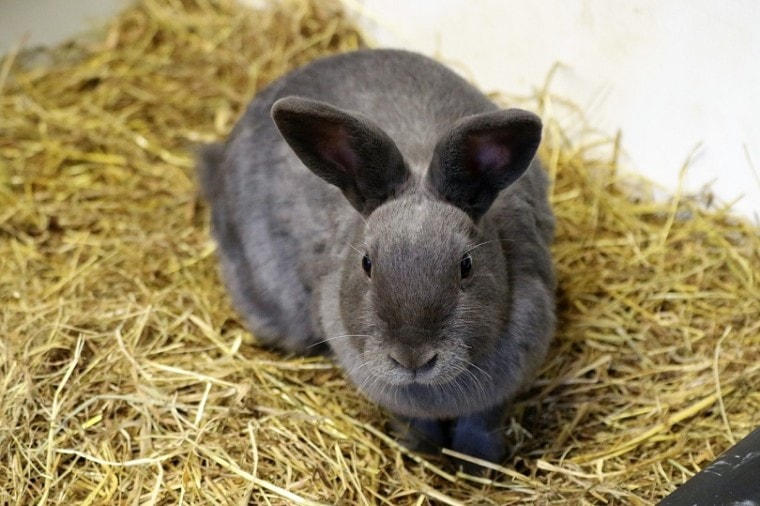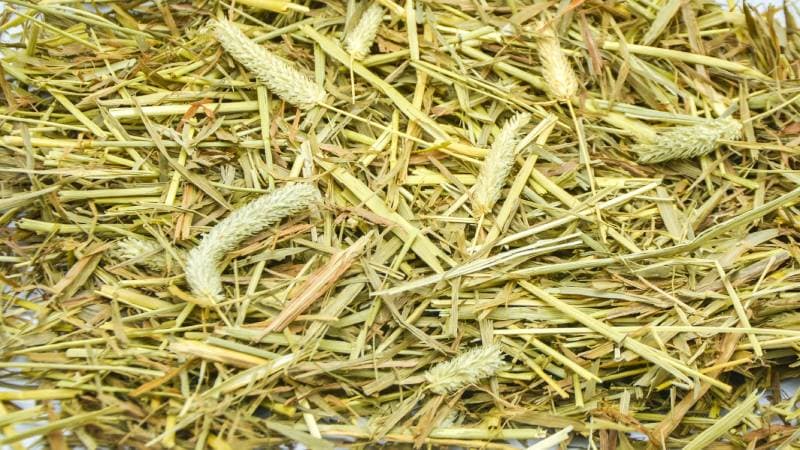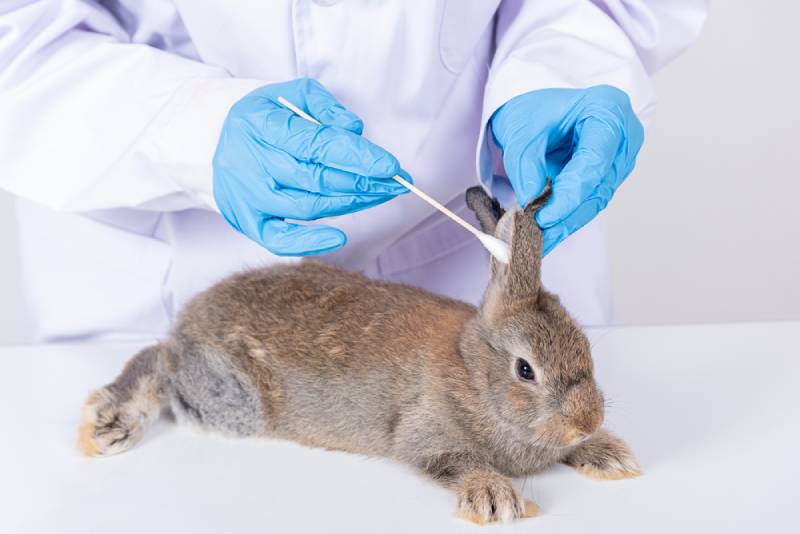
Feeding hay to your rabbit has many benefits. These include preventing dental issues by keeping their teeth from growing too long, maintaining intestinal health, and providing the right amount of fiber, protein, and other vitamins and minerals.
Knowing which hay is the best can be confusing, and you want to make sure the hay you purchase is high-quality and free from mold, dust, and chemicals. Timothy and meadow hay are easy to find and are often affordable. Keep in mind that some rabbits may be fussier than others, so it is a good idea to be open to other types of hay.
The 6 Best Types of Hay for Your Rabbit:
1. Timothy Hay

Timothy hay is grass hay that is a cool-season crop and can withstand harsh winters. It is different from a legume because it has long, hollow stems with spikelet flowers. Timothy hay contains less protein and other minerals compared to alfalfa hay, but it provides the appropriate amount needed for adult bunnies. There is plenty of fiber and protein in timothy hay to keep your rabbit healthy and happy. Typically, timothy hay is affordable compared to other hays, and it is the most popular feed choice for rabbits.
2. Alfalfa Hay

Alfalfa is a legume from the pea family that is high in minerals and provides plenty of energy. It is harvested starting in the spring or early summer, and you can grow several cuttings each season from one field. This hay is perfect for the first six months of life (after your bunny has been weaned). It provides high amounts of calcium and protein that is essential for growth, but if fed exclusively to an adult rabbit, it can cause urinary stones due to the high calcium content.
3. Orchard Grass Hay

Orchard hay is another cool-season grass that is more tolerant of drought than timothy hay. It grows in tufts, with long stems and cattails that mature late in the season. Some rabbits may prefer the softer texture of this hay. It is high in sugar and fiber and low in protein. The price will vary with different companies and can range from affordable to expensive. You can also find this as a healthy addition to a hay blend.
4. Meadow Hay

Meadow hay is a mixture of grass hays that offers a variety of textures and flavor for your rabbit. There can be other plants included in the mixture, as well as debris and stone. If purchasing this hay, it would be wise to know where it came from and what is included; otherwise, you won’t know for sure what you are feeding your rabbit. As such, the protein and calcium content can vary depending upon what type of grasses are grown. On the upside, meadow hay is usually more affordable.
5. Oat Hay

This type of hay can include oat, wheat, and barley. It is rich in vitamins, fiber, and other minerals and low in protein. Many rabbits enjoy the crunchiness of the seed husks, and you will see it blended with other hays. It isn’t as affordable as other hays unless you purchase it in a blend.
6. Herbal Hay

Herbal hay is a mixture of any type of hay with herbs, such as dandelion or chamomile, for example. Timothy hay is a popular base for the herbal hay mixture. Rabbits love to forage, so if you can’t provide forage opportunities, then herbal hay is a good choice. Clover, hibiscus, lavender, rose, and elderflower are also great additions to this hay. Herbs provide essential vitamins and nutrients, as well as remedies for common ailments. Keep in mind that some herbs aren’t safe for rabbits to eat. You will find that the addition of herbs doesn’t make this hay any more expensive compared to others, however.
Conclusion
The main diet for a rabbit is either fresh grass or hay. Some people may not be able to provide a fresh forage diet for their rabbits, so the next best option is hay. Timothy hay is the best choice for an adult rabbit, while alfalfa hay is ideal for bunnies once they are weaned and up to six months old. At that point, transition your rabbit from the alfalfa because it is too rich at this point.
There are many other hays available that provide the necessary fiber, minerals, and vitamins, with the main difference being in texture and flavor. You may find your rabbit prefers the texture of one hay over the other. Some people find that blends are an ideal choice to provide optimum nutrition.
Featured Image Credit: Luetho, Pixabay









